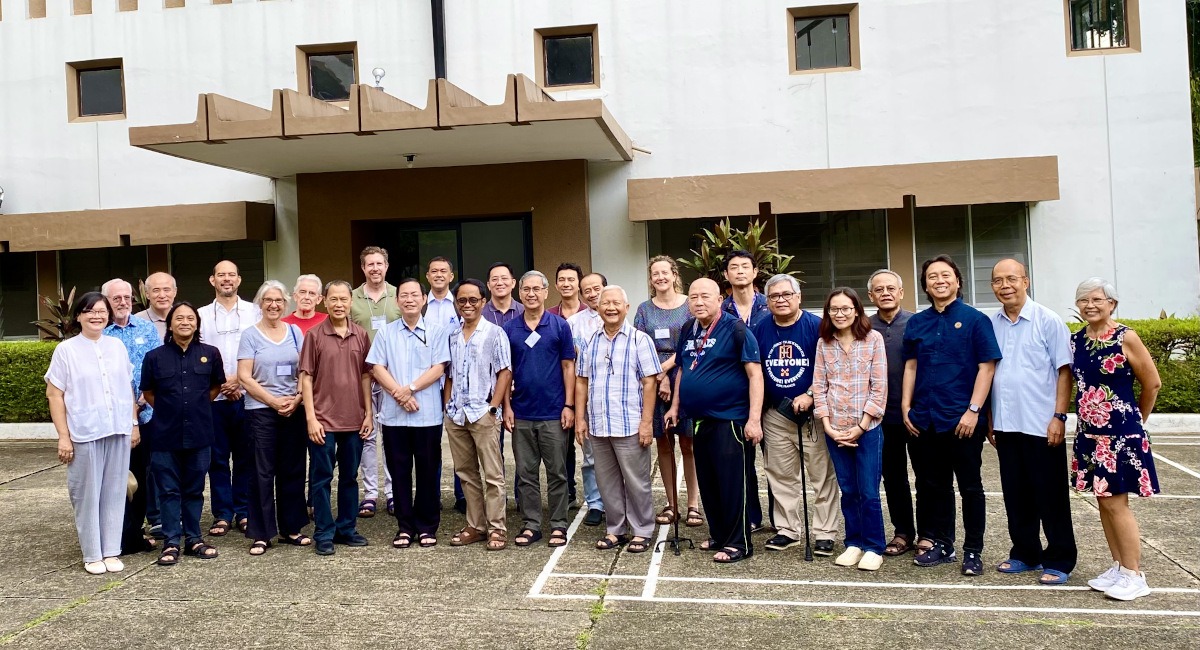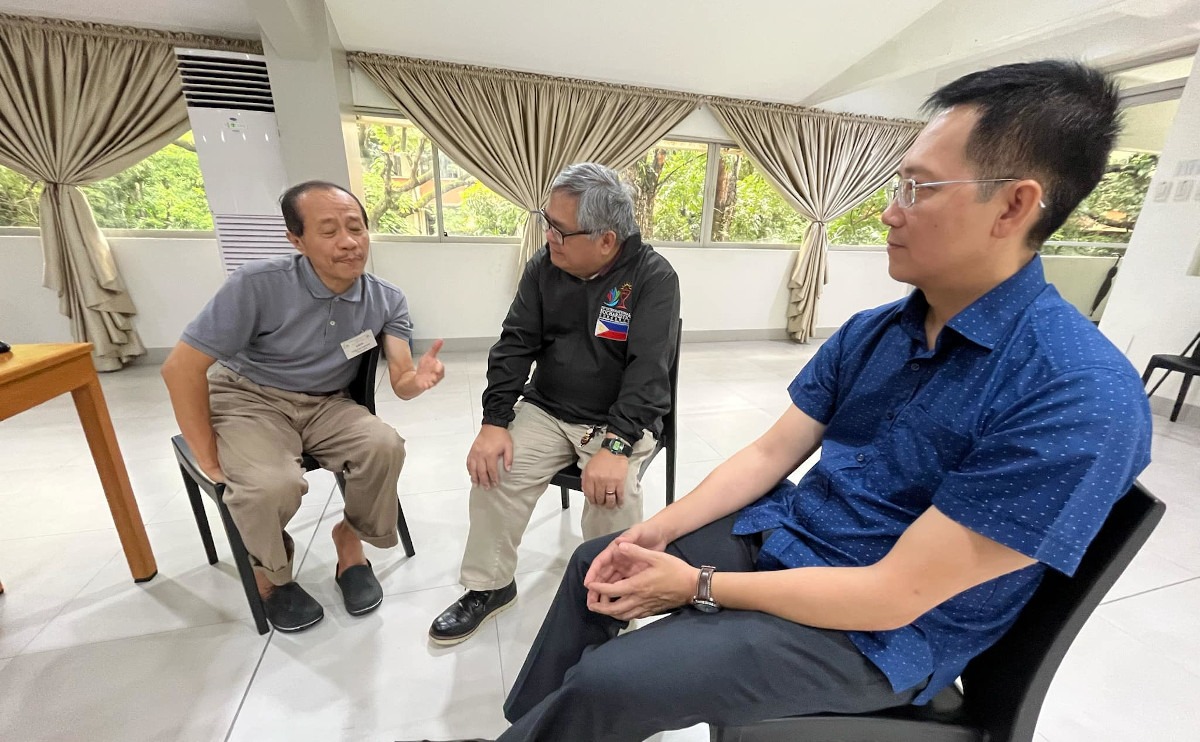
This annual gathering, known as the Extended Consult, serves as an instrument of discernment in common, listening as one to the movements of the Spirit on how the conference can best serve the mission of God. The members gathered at the East Asian Pastoral Institute in Manila for two and a half days, from 7 to 9 October, spending time in individual prayer and spiritual conversations over their apostolic dreams for their sectors and the conference in the next five years.
Many expressed hopes for a more vibrant, focused, and connected JCAP, with clear plans and resources. However, they also acknowledged the importance of staying grounded in reality, examining obstacles that hinder new ways of collaboration and animating the mission of the Society of Jesus. Someone in the group suggested that the Extended Consult, similar to the process of the Synod, should devote more time to prayer to go deeper into the promptings of the Spirit.
A special guest at the gathering was former President Fr Tony Moreno SJ, who spoke on collaboration in the service of the missio Dei. Fr Moreno emphasised that collaboration has been integral to the Society of Jesus since the time of St Ignatius and is not merely a response to the declining number of Jesuits. He reminded the group that the call to collaborate in mission has been a consistent theme from General Congregations 31 through 36.
“Without friendship, without relationship, collaboration will not go far,” said Fr Moreno, adding that the Society can either “partner or perish in relevance!”

Fr Gael Giraud SJ, a French economist, joined via Zoom to share on the “ecological polycrisis,” which refers to multiple interconnected environmental crises—such as climate change, biodiversity loss, lack of water, rising sea levels, and tropical diseases—that create feedback loops that exacerbate each other. His presentation prompted deep reflection on how the conference could incorporate the lessons of this polycrisis into Jesuit formation, youth education, and initiatives that align with the Universal Apostolic Preferences and JCAP’s flagship project, both of which highlight ecology as an important dimension.
The Extended Consult also reviewed the JCAP results of the Survey on the Roles and Responsibilities of Women in the Society of Jesus presented by Dr Melissa Lao, who represents JCAP, along with Fr Simon Yi SJ, in the Women’s Commission at the General Curia in Rome.
The group noted the diversity among countries in the conference regarding the inclusion of women and adherence to traditional gender roles. They recognised the need for self-examination, particularly among Jesuits, and acknowledged that the Society has been slow to strengthen the role of women and has much catching up to do.
Key recommendations included increased participation and recognition of women in theological centres, formation, and Ignatian Spirituality. There was also a call for greater investment in the education of women and girls, support for career development programmes, integration of gender education in safeguarding modules, and even the creation of a Women’s Commission within the conference.






